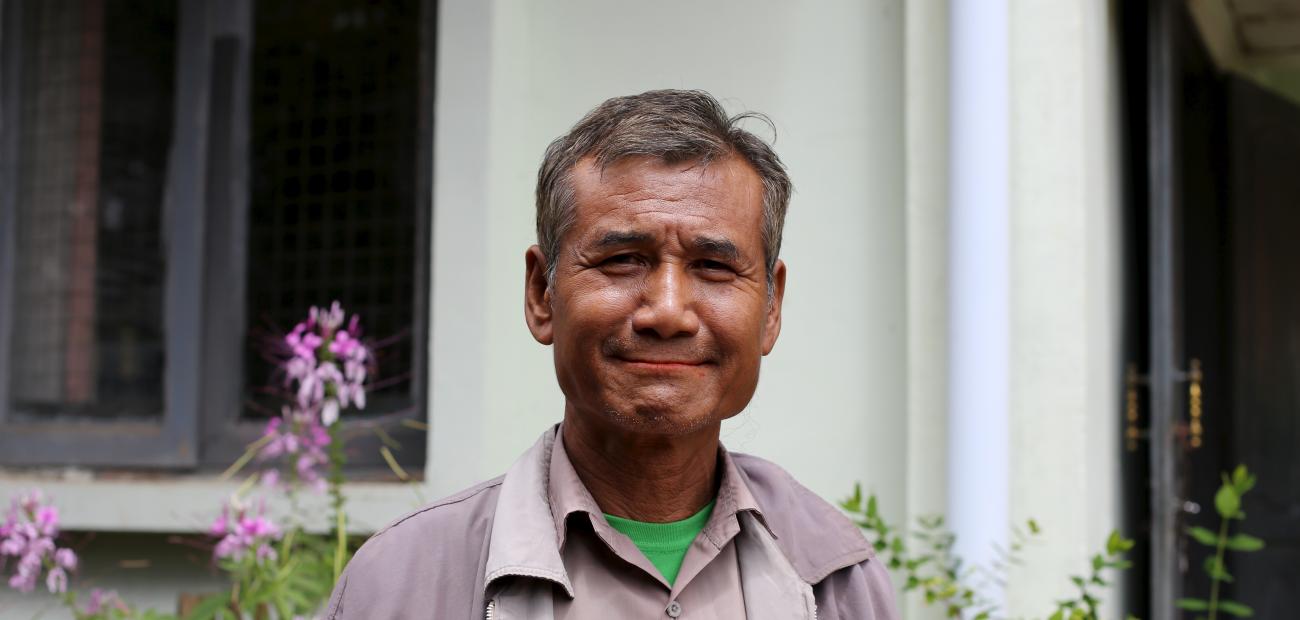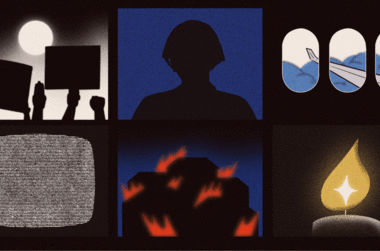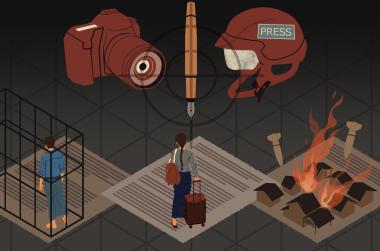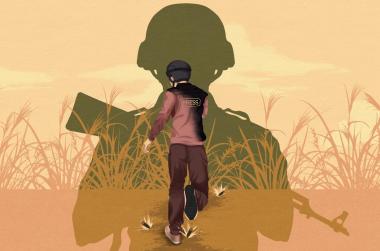It was in the depths of devastating conflict that pastor Saw Bo Thar was given a seemingly impossible choice, ensnaring him in the conflict that had lacerated his remote region of Kayin state since his childhood.
These were the “hard decades”, he said, with local people trapped by the hair-trigger hostilities between the Myanmar military and the Karen National Union armed group, who had resorted to guerilla-style tactics as the conflict intensified in the mountains and jungles.
In 2007, Saw Bo Thar was in the throes of organising a rare gathering of the Karen Baptist Convention in his hill town of Thandaungyi, which was set to attract around 20,000 people.
But just days before the meeting a deadly bomb blast near the town sent him scrambling to get confirmation from the local army brigadier that the meeting could still go ahead.
That was when he was presented with the dilema: publicly denounce the insurgents in a newsletter, or abandon the meeting.
“You have to do something for us,” he was told.
This put him in an excruciating predicament because many local people supported the KNU cause.
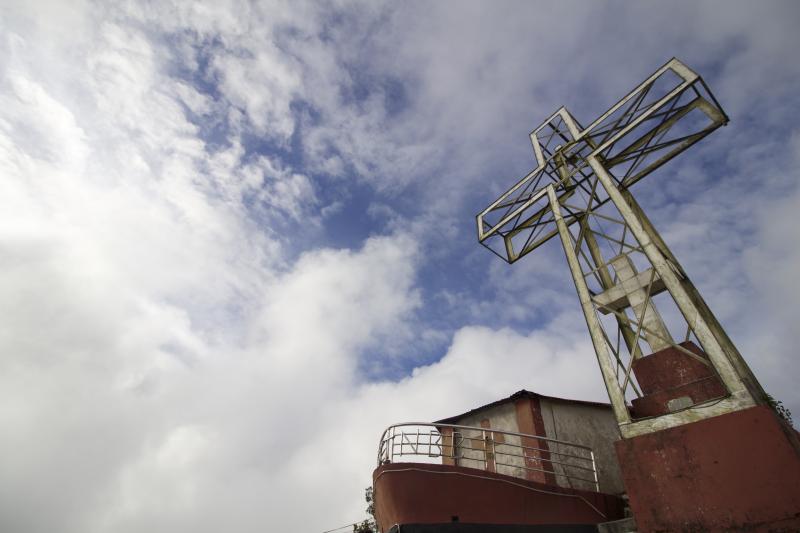
“I have faced very difficult times… But the hardness and the hardships gave me many many lessons,” said Saw Bo Thar.
One crucial skill imposed by the fighting was nimble diplomacy. Any large-scale event was viewed with deep suspicion and Church organisers needed the approval of a Buddhist-dominated military.
He had to comply with the brigadier's request.
But unbeknown to the army, Saw Bo Thar had already held talks with the KNU leadership and even invited them to attend, as long as they came as “lay people”.
And they did — in disguise — passing through the crowd right under the noses of the military commanders who they were battling in the jungles nearby.
“We also held a volleyball tournament. The military leaders and the KNU leaders came together and watched the match — but they didn’t know each other,” Saw Bo Thar said.
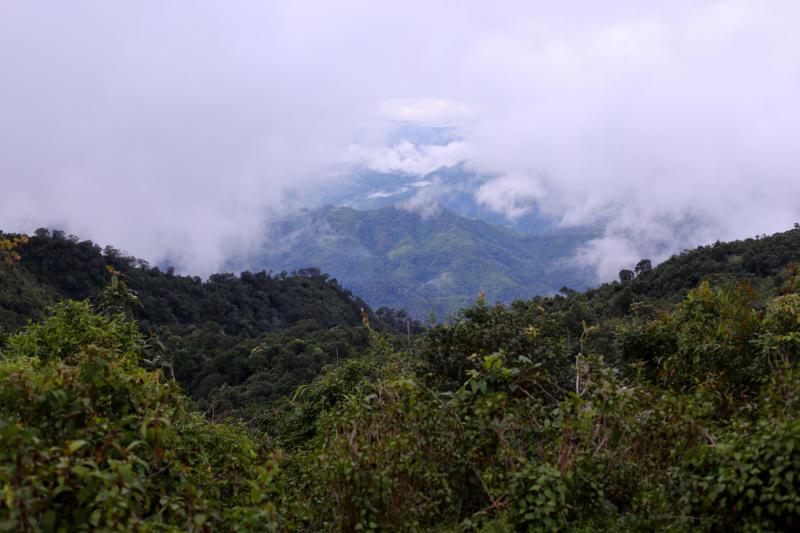
The civil war in Kayin began before independence from British colonial rule in 1948.
Four decades later the situation deteriorated markedly, after the military launched a ferocious crackdown on dissidents and ethnic armed groups across the country as it tightened its grip in response to mass protests in 1988.
In Kayin, people in rural areas were always poised to flee. They got into the habit of eating early and eating fast.
“It was very difficult. When we had time, the villagers cooked a meal. They’d say: ‘Ah Pastor, come on and eat. It is not a very safe time so we have to rush!’
“We ate when we could. Sometimes we’d put all the meal on the plates and then we heard firing, and everybody jumped up so the meal was left. That was real life, our real life.”
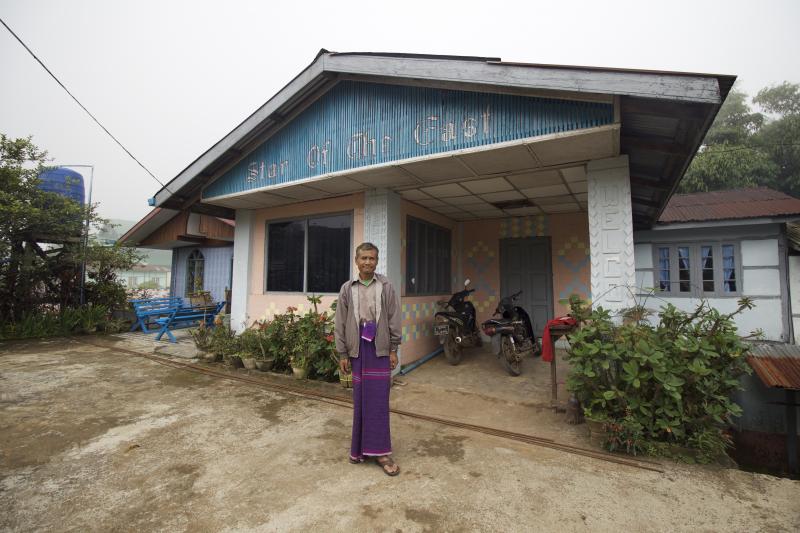
The conflict, which became the world’s longest running insurgency, encircled Saw Bo Thar’s family in their tiny rural hamlet, where his father was a respected lay preacher.
Only around 150 people lived in the little cluster of wood and bamboo homes, their roofs a simple thatch of leaves, farming seasonal fruit, coffee, betel nut and vegetables that they sold in the relative metropolis of Thandaungyi, some three hours away by foot.
“My childhood was a very pleasurable time, because while there was a conflict, it was not as strong as when I grew up. We could go out at day or at night. We could go anywhere. It was quite free and quite safe at the time.”
At seven, Saw Bo Thar moved in with his grandfather in Thandaungyi to go to the local school, but he was able to go home often to see his family.
“Until I was a teenager, I went back to my village every weekend. It was quite close for us because we were young, we were not afraid of this distance.
“After that because of the political conflicts, because of the fighting, it became harder to go back. We could just go at night."
As with so many other aspects of life in Myanmar, 1988 marked a sinister turning point and the largely ethnic Bamar army swooped to attack communities they believed provided support or cover for insurgents, with its notorious ‘Four Cuts’ policy.
Grave rights abuses and attacks drove tens of thousands of people all along Myanmar’s eastern flanks across the border into Thailand. Land grabs and land mines meant many have never been able to return home.
“They said, ‘If there is a water, they will be a fish, but if we drain all the water off, there will be no fish.’ So they took off all the water — they forced all the villagers to places where they can control,” said Saw Bo Thar.
His parents, then in their 70s, were also driven from their home in 1997, taking shelter in Thandaungyi, where four of their five children were already settled.
“They were so sorry because they missed their land, their farms, their place. Everyday, they wanted to go back; especially harvest time. My father always said to me: ‘This year I will go back to the village!’,” he said. But they never could go back.
“They stayed here, and they died here.”
In some ways they were lucky. With family around they could make do without the income from their land.
Others were impelled by desperation to try and continue to farm their land.
“They tried to take a risk, to go back and take some things. (Some) met with the land mines, their legs were broken, some were gunned down because of the army group and they were killed.”
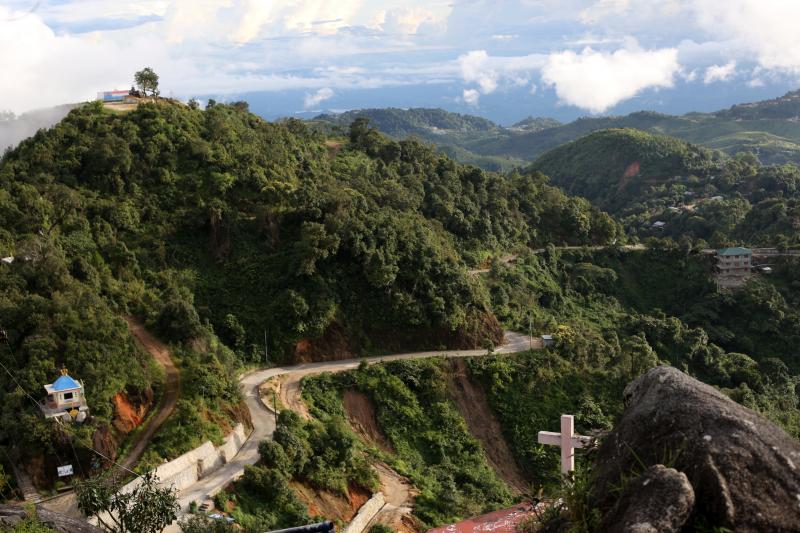
In recent years a ceasefire between the government and the KNU has brought respite, if not complete peace.
Just before we spoke to Saw Bo Thar another sporting event had brought the once warring enemies together — this time in the open.
A football tournament held for World Peace Day had one army team and another KNU one and “they played together”, he said.
Local people have begun to hope they could develop a tourist industry, taking advantage of the natural beauty and cool climate that made the area a popular hills station during colonial times.
Saw Bo Thar dreams of taking people to his village, although the old houses are “all ruined, abandoned” and land mines continue to pose a grave menace.
The pastor is eager for any industry that would help build a local economy and give a younger generation hope of an economic future at home.
“You don’t need to move away to get benefit to be rich. We just can stay here and I want to show that we can stand as our people, stand on the land,” he said.

